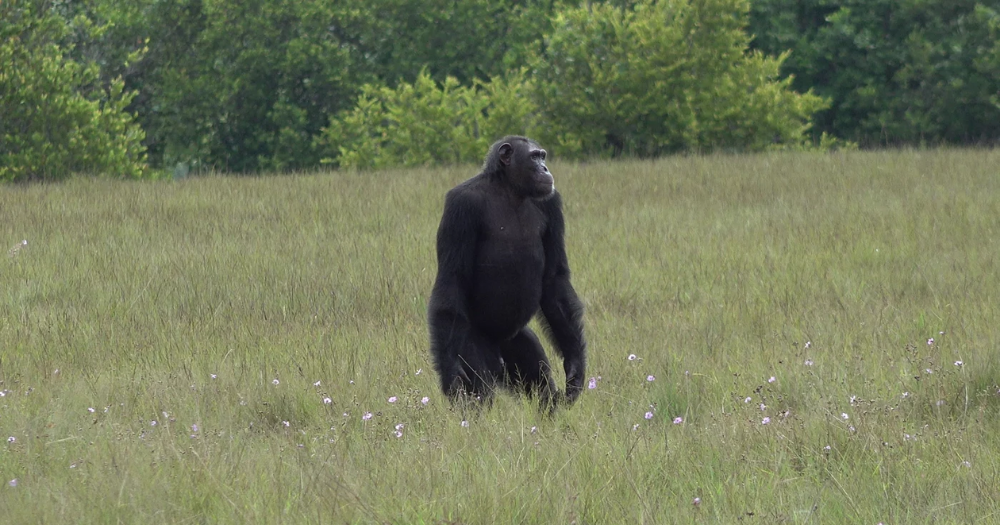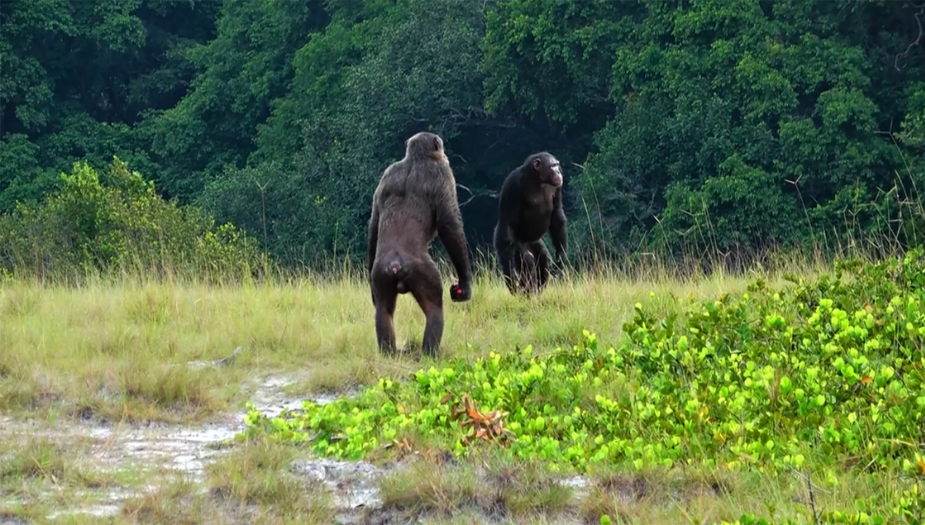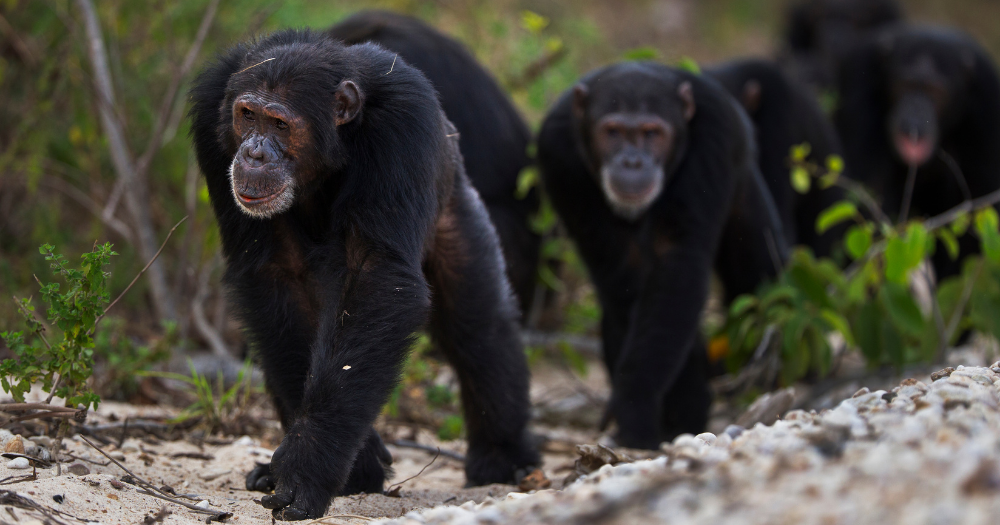Follow us on Telegram for the latest updates: https://t.me/mothershipsg
In a research paper published on July 19, scientists in Germany recorded two instances of lethal attacks by chimpanzees on gorillas in the wild.
This is the first known occurrence of lethal encounters between the chimpanzees and gorillas.
The team consists of scientists from Osnabrück University and the Max Planck Institute for Evolutionary Anthropology in Leipzig, Germany.
Since 2005, the Loango Chimpanzee Project (LCP) have been making observations in the Loango National Park in Gabon.
 Two adult males of the Rekambo community of the Loango Chimpanzee Project in Gabon checking the area. Photo by LCP, Tobias Deschner.
Two adult males of the Rekambo community of the Loango Chimpanzee Project in Gabon checking the area. Photo by LCP, Tobias Deschner.
"Surprisingly aggressive interactions"
One of the authors of the paper, cognitive biologist Simone Pika, said that the previous recorded interactions between chimpanzees and gorillas have been "relatively relaxed”.
"We have regularly observed both species interacting peacefully in foraging trees. Our colleagues from Congo even witnessed playful interactions between the two great ape species", she said in a press release.
According to the research paper, chimpanzees and gorillas across multiple communities have been frequently reported to kill within their own species.
Tobias Deschner, a primatologist who leads the LCP, said that this is the "first evidence that the presence of chimpanzees can have a lethal impact on gorillas".
The team will further "investigate the factors triggering these surprisingly aggressive interactions."
 Adult male chimpanzee in Loango National Park in Gabon. Photo by LCP, Lara M. Southern.
Adult male chimpanzee in Loango National Park in Gabon. Photo by LCP, Lara M. Southern.
Two gorilla infants killed, one eaten by chimpanzees
While the research team observed nine peaceful direct interactions between the chimpanzees and gorillas between 2014 and 2018, the only two encounters observed in 2019 involved lethal attacks.
"The chimpanzees were at an advantage even against the larger gorilla species, given their ability to cooperate", the authors wrote in the paper.
The chimpanzees formed coalitions and attacked the gorillas, who were outnumbered.
A total of 27 chimpanzees met five gorillas in the first instance, and seven in the second. Both fights lasted for more than an hour.
The adult gorillas managed to get away both times, but not without casualties.
According to the paper:
"The first encounter resulted in one dead gorilla infant and three injured chimpanzees; the second resulted in one dead gorilla infant.
While there was no indication of consumption of the dead gorilla infant in the first encounter, the infant in the second encounter was almost entirely consumed by one adult chimpanzee female."
Competition between gorillas and chimpanzees
Although the infant was consumed, "the behaviours observed during the two events were very different to those reported during hunting".
A more likely explanation for this new behaviour is the competition between the two species.
Gorillas and chimpanzees show considerable dietary overlap and have a relatively high potential for dietary competition.
The authors found that these encounters were also similar to those observed when different chimpanzee communities encounter each other.
Some evidence indicates that adult male chimpanzees "kill infants of other communities to reduce competition for food by inducing foreign females to avoid contested regions".
Therefore, it may be possible that the "gorillas are perceived as competitors, for both space and resource use, similar to members of other chimpanzee communities."
Exacerbated by food scarcity and climate change
According to the paper, the two lethal encounters "occurred at times characterized by food scarcity and a period of high dietary overlap (for fruit resources)".
The Max Planck Society stated that "the increased food competition may also be caused by the more recent phenomenon of climate change and a collapse in fruit availability as observed in other tropical forests in Gabon".
"It could be that sharing of food resources by chimpanzees, gorillas and forest elephants in the Loango National Park results in increased competition and sometimes even in lethal interactions between the two great ape species", said Deschner.
Top image via Getty Images.
If you like what you read, follow us on Facebook, Instagram, Twitter and Telegram to get the latest updates.

